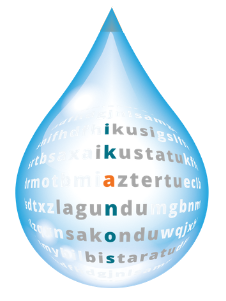Competencias Digitales en Euskadi

FOR STAKEHOLDERS, PROMOTERS AND POLICY MAKERS
Collaboration for the implementation of digital skills development policies.
Since 2012, the Basque Government includes in its strategy the challenge of improving people’ digital skills to increase their employability and proximity to learning. Initiatives aimed at socializing and universalizing digital skills in the Basque society are encouraged. The digital skills are required to develop a capable, participative and co-responsible society, users of advanced and high impact digital services.
Mastery of digital skills increases competitiveness, quality of life and collective well-being. It is essential to stop considering technology as an end and to integrate it into the educational process in a transformative way. A transformation that promotes a more autonomous learning and more focused on the differential capabilities of people.
It is necessary to look for inclusive solutions, to adapt actions to the technological and socioeconomic reality of each environment, considering the equipment and the connectivity available in houses, in educational centers, in neighborhoods, etc. and adapting the policies to the available digital activities in each local environment.
Advantages of DigComp framework as a tool for public policy design:
- DigComp provides a solid and easily understandable methodological background, even for non-experts..
- It is a consolidated reference at European level and an emerging reference at international level (ITU, Unesco, ect).
- It is used for technical issues and as support for human resources policies. It was created at request of the European Commission’s DG Empl.
- Its development is supported by the JRC, with expert teams that work with open dynamics.
- It is updated for the improvement and inclusion of digital innovations, maintaining its general structure. (Next update first semester 2021).
- Format and contents are connected to other competence frameworks developed by JRC
- To know the level of digitalization and use of ICTs among social sectors.
- Provide specific recommendations to improve the level of digitalization as data becomes available.
- To have data for the deployment of training, accreditation and certification processes of digital competences.
- Provide information on ICT itineraries, scaled by levels.
- To propose “personalized digital pathways” according to the users’ level.
- Encourage the use of advanced digital services available.
- Disseminate the resources and programs available to promote the advance of Information Society.
Focus of actions design for the promotion of digital skills
Ikanos model as a value contribution to guide the improvement of digital skills:
- It enhances the learning process, is comprehensive and modular.
- It is a versatile model, adaptable and scalable to different environments, either by size, complexity or ambition.
- It links to digital transformation processes, which are developed in economic and social activities.
- Experts value its innovative and pioneering character.
- JRC considers the model and the ecosystem of agents involved in the Basque Country a good example in its application to employability.
- The people team behind Ikanos act as experts in forums and advise public entities, such as the European Commission




